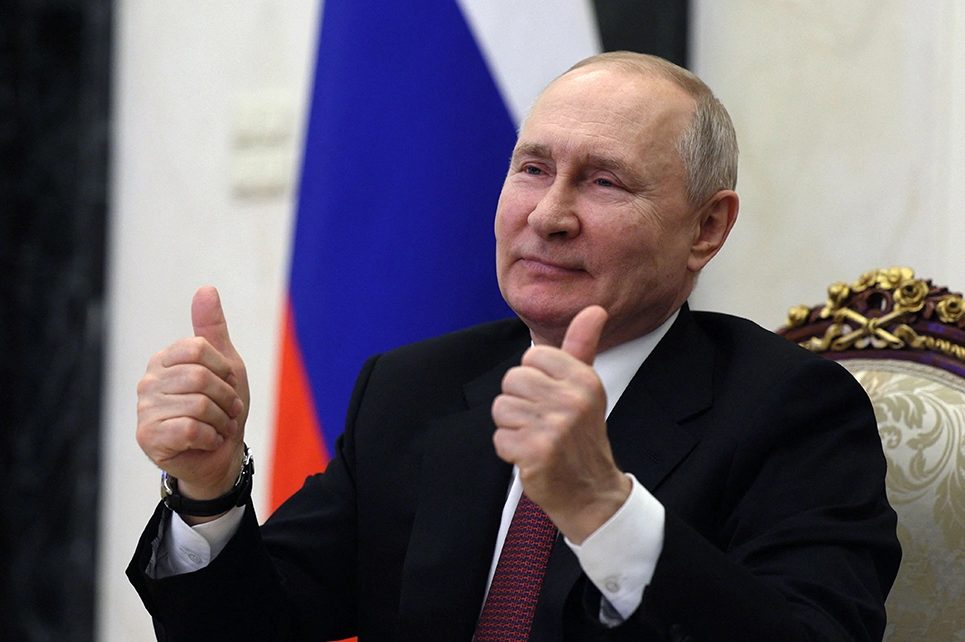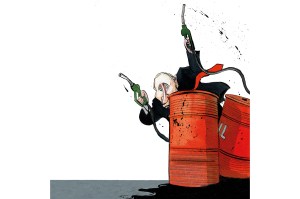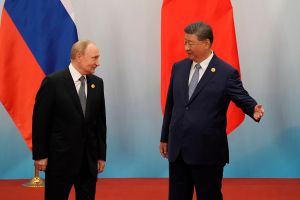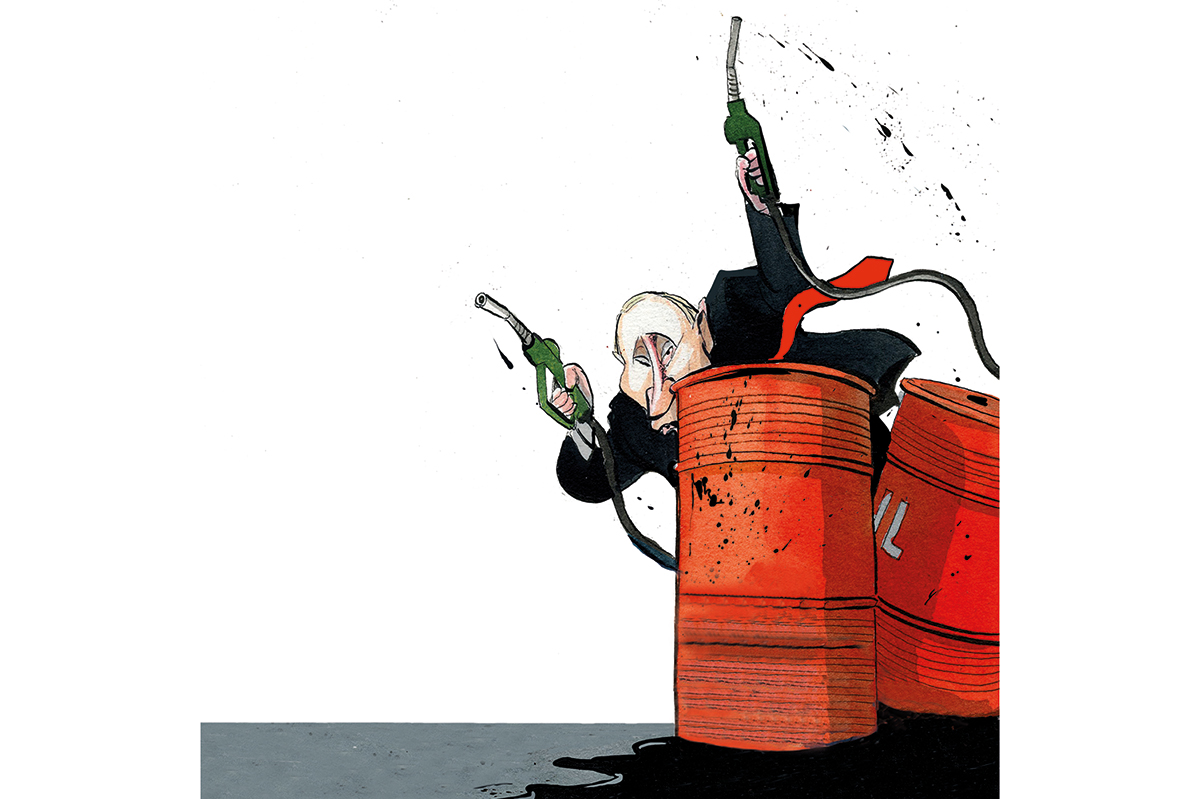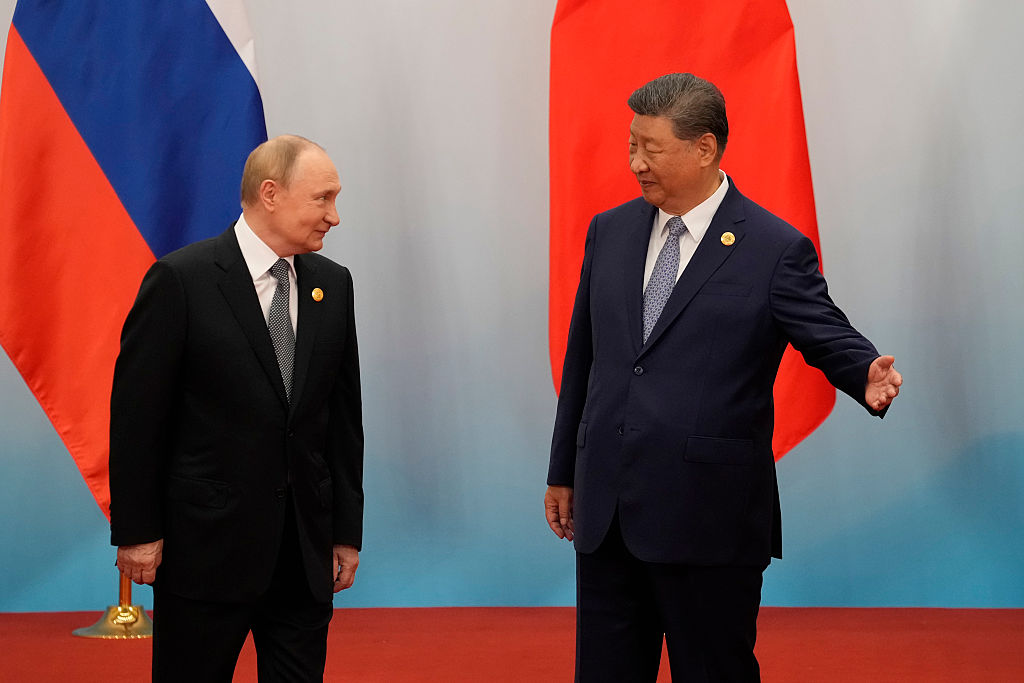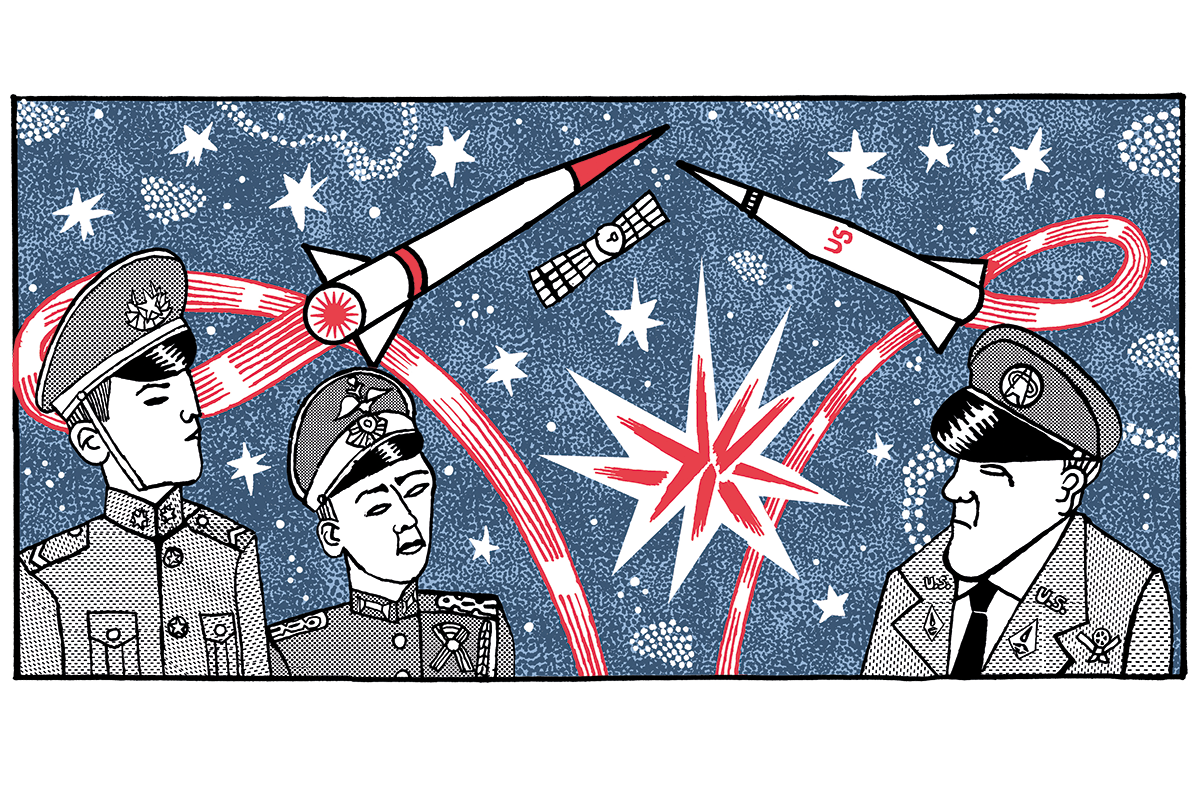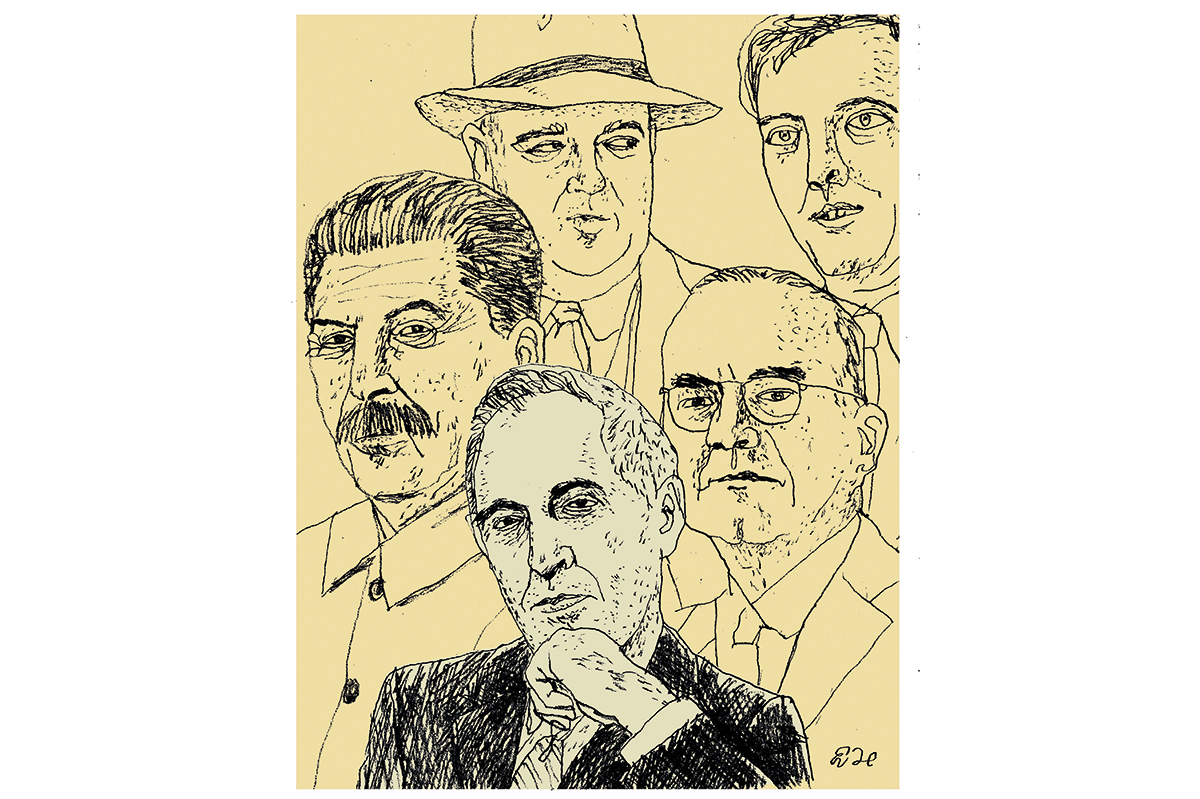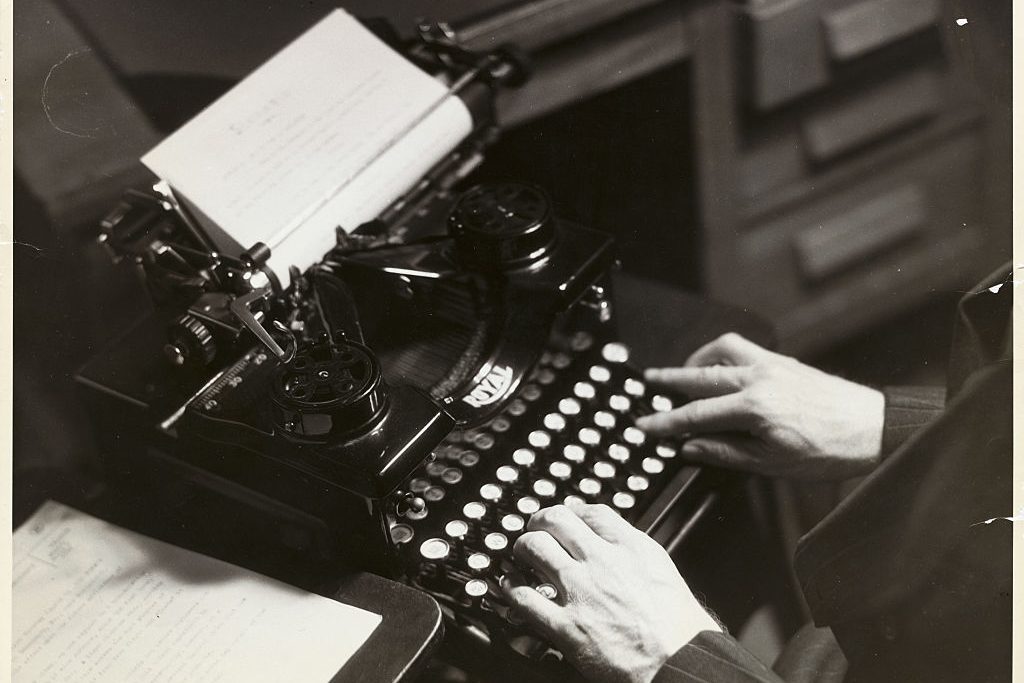“It’s too soon,” said an anti-war Russian friend about the crop of books which have been emerging since late last year on Putin’s invasion of Ukraine. Perhaps he is right. Yet, mindful of Lenin’s maxim that “there are weeks when decades happen,” many may feel the period since February last year to have been one of the longest of their lives. Amid the fog of war — an endless news cycle in which events pile up, too enigmatic or episodic for the big picture to emerge — one is grateful to any writer who sets out to give the wider narrative.
One such is Serhii Plokhy, the Zaporizhzhia-born historian and Ukrainian specialist, in The Russo-Ukrainian War. A detailed account of the invasion’s first year, it’s also a canter through his country’s history, reaching back to the emergence of the Cossacks in the sixteenth century, through the national movements of the 1800s and the repressions of Soviet years and beyond. Readers will be tempted to skip straight to last year’s invasion, but the book is particularly strong on Ukraine’s attempt to chart its own course since 1991, and the ruinous destabilization Putin has put it through since coming to power.
As for the war itself, all the incidents are here — the bombing of Mariupol’s maternity hospital and regional drama theater in March last year, the brutal assault on the Azovstal steelworks, the September annexations and so on, along with enjoyable vignettes. Who now remembers the 5,000 helmets offered Ukraine by Germany as other countries donated top weaponry; or how Putin was left squirming on camera for nearly a minute while his fellow despot Erdogan kept him waiting; or the gleeful commemorative postage stamps from Ukrposhta after the sinking of the Moskva?
It’s all here, and pessimists about the war’s outcome — Plokhy doesn’t seem to be one of them — can take heart from his words on what the Ukrainian resistance has already achieved. Instead of crushing the independence of its neighbor nation, he writes, the Russian attack “has strengthened the Ukrainian people’s sense of identity and unity, endowing it with a new raison d’être, new narratives, and new heroes and martyrs.” There will doubtless be an expanded edition of this book at some future point — perhaps, sad to say, in more than one volume.
A Russian point of view on the war, albeit untypical, can be found in My Russia by Mikhail Shishkin, the Moscow-born, Basel-based novelist who in 2013 berated Putin’s “corrupt, criminal regime” in an excoriating open letter and now declares himself “tortured by shame over my country.” A bleak, at times breast-beating, account of disillusionment with Russia since the early “years of hope” of the 1990s, it’s also an examination of the country’s habitually fatalistic, supine attitude to authority, which Shishkin dates to the Mongol invasion of the thirteenth century. Looking to a future beyond Putin, he writes: “Russia does not need a new actor in the leading role, Russia needs a new play.” And: “The empire has to be removed from minds and souls like a malignant tumor.”
Blunt statements like these make the book a bracing read, but it suffers at times from too broad brushstrokes. Russia appears almost a second Mordor: black and unredeemed, a place where the sun doesn’t shine and flowers don’t bloom. Europe, meanwhile, is described, since the outbreak of war, as “united, strong, wise, young and beautiful.” Western visitors to Russia, who see the huge structural problems of the country but nonetheless find things to love, may recognize neither home nor away. But perhaps that’s because, unlike Shishkin, we take our freedoms so much for granted.
One writer who takes nothing for granted is Jade McGlynn, whose Russia’s War — not just Putin’s war, she stresses, for it has wide Russian support — is an almost masochistically ambitious study of Russian attitudes to the invasion. Eschewing, thankfully, all mention of “the Russian soul,” she sets out to anatomize what may be happening in Russian heads instead.
McGlynn is empathetic while never forgiving, and anxious to nail the different categories of war supporters and the narratives — often wildly divergent and incompatible — that have been put into their minds and left to fester there. Readers with acquaintances in Russia will nod many times: there is no familiar excuse for the invasion which is not unearthed, explored and dismantled. As part of the research, McGlynn tells us, she “downloaded all the Telegram data for sixteen highly popular but variegated channels between February 24 and May 20, 2022 — some 74,853 — and coded their content by virality… and theme.” In the wrong hands this might make for an unreadably dense book, but not here. Always lucid and thoughtful, it sometimes has the feel of social science; at other times, it’s more personal, as McGlynn, with some anguish, ponders Russia’s current moral collapse: “To look at Russia now, as someone who loves the country, is to despair.”
Those who, like McGlynn, have been driven nearly mad by the gaslighting will wish they’d got hold of this book earlier. It’s a journey into a heart of darkness, even madness, but with a cool-headed and astute guide we quickly learn to trust. In one footnote she describes Russia’s War as “a pretty depressing book,” and one doesn’t envy her the job. Considering the mass of data marshaled, pacified and brought under control, the book sometimes seems as much McGlynn’s war as Russia’s. Those of us who would have baulked at such an undertaking have good reason to thank her. While far from an optimistic read, the experience of finally seeing the facts laid out with such clarity, and a coherent picture emerge from them, is about as depressing as watching fog lift.
This article was originally published in The Spectator’s UK magazine. Subscribe to the World edition here.



